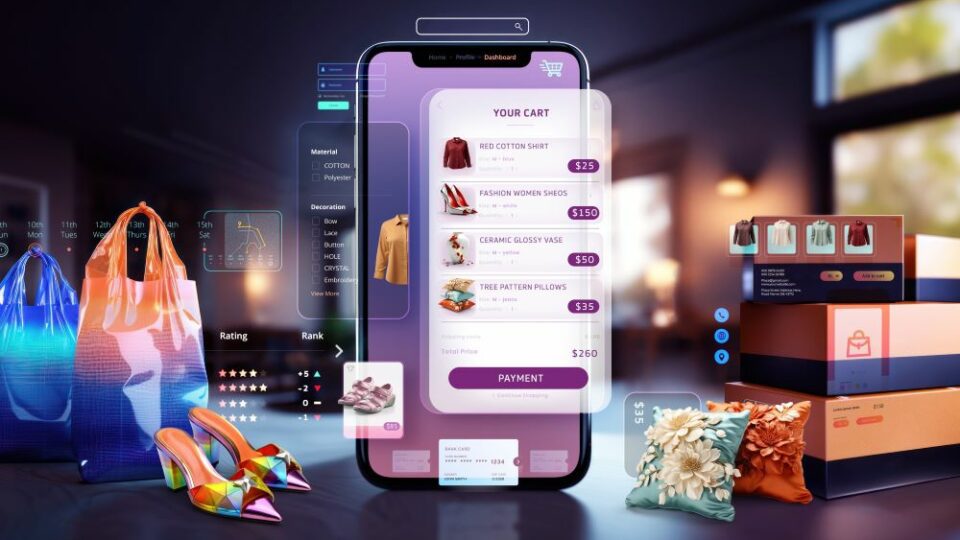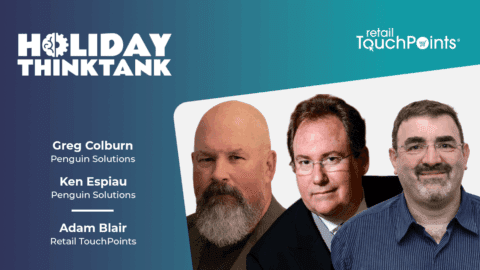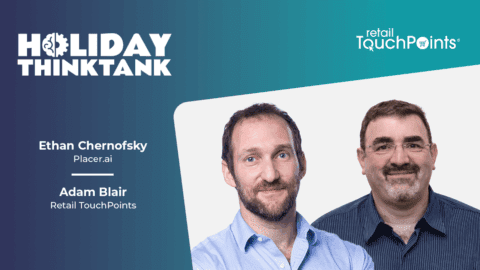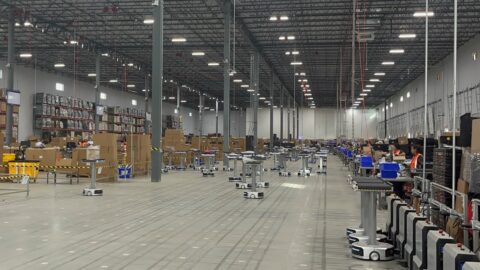Not too long ago, marketplaces were something of a joke among the ranks of legacy retailers, easily brushed off as the naïve fancy of tech upstarts who didn’t understand true retailing. But in the last few years, marketplaces have slowly moved from “passing fancy” into the realm of “transformative innovation.”
Giving heft to this shift have been the names steadily joining the ranks of marketplace operators — retail heavyweights like Hudson’s Bay, Macy’s, Simon Property Group and Kroger all have joined the fold, and the common denominator among many of them (and in the case of the above list, all of them) is SaaS marketplace platform Mirakl.
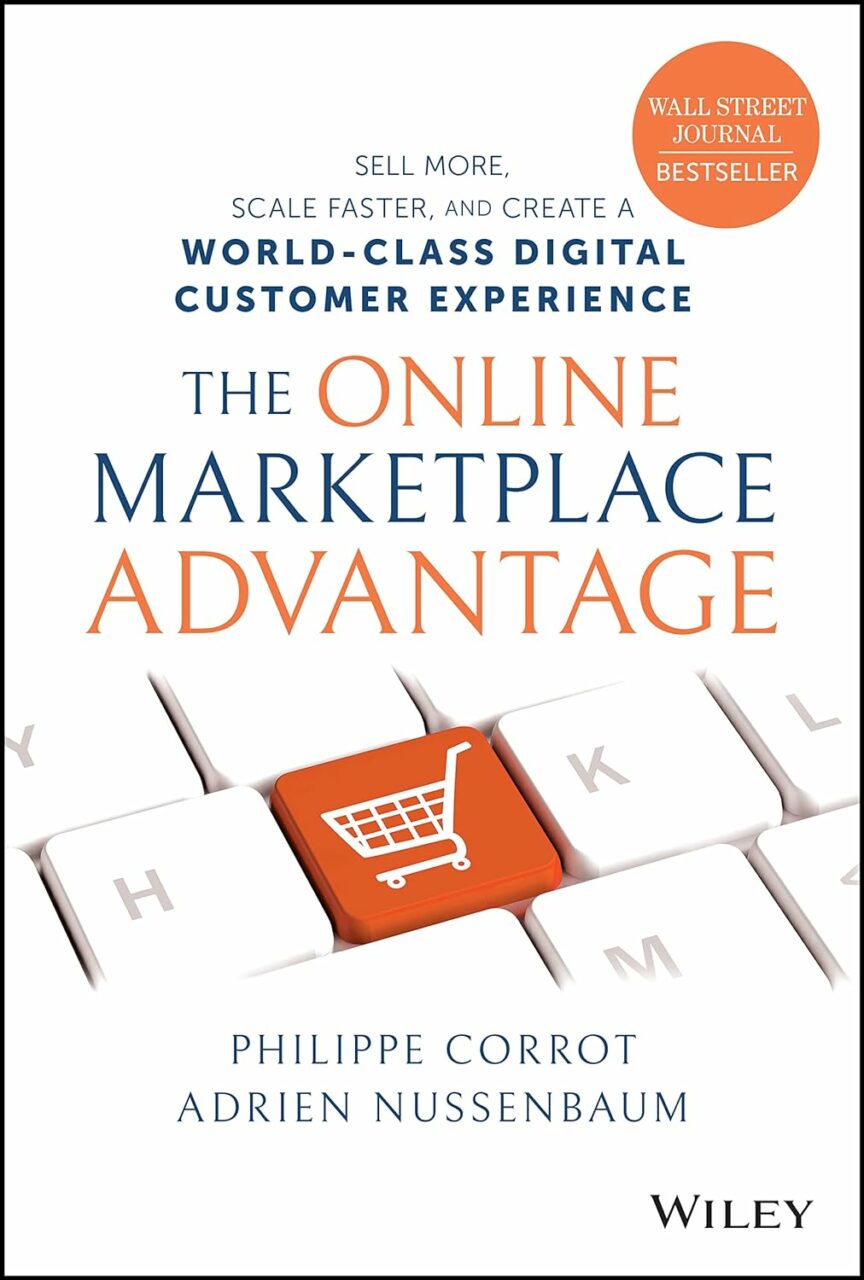
In the new book, The Online Marketplace Advantage, Mirakl Co-founders Philippe Corrot and Adrien Nussenbaum outline the “platform revolution” underway in retail and the implications it could have, not just for the industry but for the world at large. Underpinning larger ideas about the evolution of commerce and retailers’ efforts to take back what is theirs from the “21st Century Goliaths,” the book includes frank, transparent stories of marketplace implementations at some of the biggest names in retail and beyond.
Nussenbaum sat down with Retail TouchPoints to dig into the larger ideas behind the book, his company and the marketplace movement as a whole.
Retail TouchPoints: The quantity and caliber of retailers featured in the book is quite impressive. In fact, there are details in here I haven’t seen these companies, like Kroger and Macy’s, share anywhere else. How do you account for not just the proliferation of marketplaces, but executives’ increased willingness to talk about them?

Adrien Nussenbaum: Every year we host summits [with our clients] and we come up with a theme [for the event] around the idea that the people in the room are true disruptors, at least at the scale of their company. So we’ve had “Breakthrough,” “Now or Never,” and this year was “Dare Today.” It’s about recognizing the risks that people are willing to take, [which is also why] we call our clients “platform pioneers.”
[This is important because] often the easiest thing to do as an executive is to not do anything, but at the same time everyone always talks about “innovation” and “digital transformation.” The reality is that before marketplaces, there was nothing really innovative about ecommerce. I mean of course there is the underlying technology — you can take orders, you can add things to the cart, you can pay in one click — but frankly, it’s just a store online. For many years ecommerce was about “anytime, anywhere,” just being able to buy 24/7, and everyone’s big initiative was “omnichannel,” but there’s nothing disruptive about omnichannel.
But when it comes to marketplaces, there really is a mindset shift to being truly customer-centric, and recognizing that to serve customers in the era we’re living in, you have to do more and put more in front of them. Otherwise, they’re going to go somewhere else. It’s not just about “anytime, anywhere,” it’s about “anything, anytime, anywhere,” and that “anything” won’t happen just by stacking your warehouses with more products that you don’t actually have the cash to amass in such quantities.
RTP: You talk in the book about how marketplaces are “redefining competition.” What do you mean by that?
Nussenbaum: Marketplaces are fueling the natural human desire to have everything. They are reshaping what “good” looks like and what “great” looks like in terms of assortment, selection, price, transparency, etc. So there is an element of marketplaces setting a new bar.
Marketplaces are also blurring traditional boundaries between partners and competitors. More and more you find marketplaces hosting sellers that happen to be, technically, competitors that have their own website, sometimes even their own stores. [Gone are the days when having a] marketplace meant hosting no-name sellers that you didn’t know where they got their products from.
What matters now is the ability to capture value online. If the traffic is not going to come to your own site, [merchants are realizing they are] better off putting their products where the traffic is. And merchants that aren’t able to sell a product — because it’s not a brand they work with or they don’t have the ability to take on every single size or color of a specific product — [are realizing that they are] better off having what could be perceived as a competitor selling it through their website, taking a commission and keeping the customer relationship, [rather] than just telling the customer, “Hey, walk down the street. They may have it.” With marketplaces you’re basically inviting the store down the street into your own store, and that’s redefining competition.
Marketplaces are also redefining competition [when it comes to the idea] of owned inventory versus 3P [third-party] inventory. Things have shifted in the last year, but in the two years of COVID everything was about disrupted supply chains. A big driver of new business for us [at that time] was, “We don’t have what people are looking for.” I remember around that time [Macy’s CEO] Jeff Gennette went on Mad Money or something like it explaining that during COVID they didn’t have bread-making machines, and [so] they got that assortment through their marketplace rather than having buyers identify suppliers, source the product, bring them in, etc.
In the last year as supply chains have stabilized, it’s much more about profitability again. Now what we’re seeing is more organizations raising the bar in terms of what it takes for a product to be one that they actually decide to own. A lot of companies are shifting 1P inventory to 3P. It’s a rethinking of the “competition” between your marketplace and your own business; the whole idea of cannibalization is fading. I think a lot of organizations are starting to realize that it’s not about ecommerce versus your stores and now marketplace versus ecommerce — they’re three legs of one stool.
RTP: You also suggest that marketplaces could be the answer to some of the “monopolistic tendencies” of the big tech giants. How so?
Nussenbaum: Monopoly is a natural human desire, and digital has led people to believe that it’s possible. Amazon has put its marketplace at the heart of its monopolistic strategy, combined with borderline business practices like one-click buy, Prime, the storage of payment data — which in Europe, for example, their competition is not able to do, [so they can’t offer the] same one-click experience. There are a lot of things feeding this idea that you can own almost every part of a customer’s life: their entertainment, their cloud, their shipping, their shopping. But if you don’t have a marketplace at the beginning, the whole thing goes away; the marketplace has really been the [catalyst].
Our clients are saying, “We also have the right to play in this space. We’ve spent years or decades investing in our brand, we have stores,” and they [want to] start to regain market share. [One of those clients is] the largest DIY company in the UK, called B&Q. They increased their online revenues by more than 28% within a year and a half of launching their marketplace, so marketplace is now 28% of their online sales. And those sales are on products that they didn’t sell before that people were buying on Amazon, because there’s no other DIY chain in the UK at their scale.
So there’s this idea of regaining [ground]. In the coming years with the regulatory [action happening now], I think things will happen with Amazon that will open up even more space for the rebellion that we are arming.
One other thing is that [many of] the third-party sellers, who are key to the whole success of Amazon, dislike working with Amazon. So a lot of the investments we’re making on the Mirakl side in terms of our product are also about making it easy for those sellers to now be on 50, 60, 100 other marketplaces.
RTP: You talk about how hard it was to sell the idea of Mirakl at the beginning because you were trying to sell people something they didn’t know they needed. I imagine that’s changed as awareness and acceptance of third-party marketplaces has expanded. What is your biggest challenge now in talking to people about this concept and the idea of Mirakl?
Nussenbaum: Things are a bit easier than they were 10, 12 years ago, but I wouldn’t say it’s day and night. There is still a huge market to go after. And the biggest challenge is that every year, if you think about [a company’s] digital roadmap, there are always 10 to 15 things that come up in the budget reviews, and there are maybe three or four that make it above the line.
The perceived business value of marketplaces is much clearer today because of all the stories, because Walmart has its marketplace, because Macy’s has a marketplace, etc. But the perceived risk for the decision maker, the person who’s actually going to have to do it, is still high. So a lot of what we have to do is a combination of making sure that from a business value perspective it’s compelling enough that it ends up above the line, and at the same time to surround the decision maker with a level of comfort.
RTP: What categories or industries do you feel are still nascent when it comes to marketplaces?
Nussenbaum: If I look at the U.S., the sporting goods industry [is a big one]. Dick’s, REI, Foot Locker, Finish Line, none of them have a marketplace. The beauty industry also. Home Depot and Lowe’s don’t have a marketplace either, so there are a lot of very significant players [still ripe for a marketplace]. I think grocers still have to figure out the weekly replenishment experience versus where they can be everything, every day for their weekly shoppers. And then there’s the whole B2B world, which stands across distributors and manufacturers and is a completely wide ocean that’s still very much untapped.
RTP: What is the latest new iteration on a marketplace that you found really exciting?
Nussenbaum: There are two different ones. First, we recently signed with one of the largest media conglomerates in the world [NBCUniversal]. At some point someone will figure out how to combine content and commerce, and it will be with a marketplace. The “how” has proven challenging over the years because [they don’t want to be] too intrusive, but the stuff we’ve done with NBCUniversal is opening eyes. I think that’s exciting and completely different.
We will also probably announce soon a major deal with one of the largest pure-play retailers in the world. [This is one of those retailers] who so far said, “We don’t need a marketplace,” but they’ve made the leap and chosen to work with Mirakl. That’s exciting for me because it’s further proof that pure-play companies also see this as the next chapter of growth.




